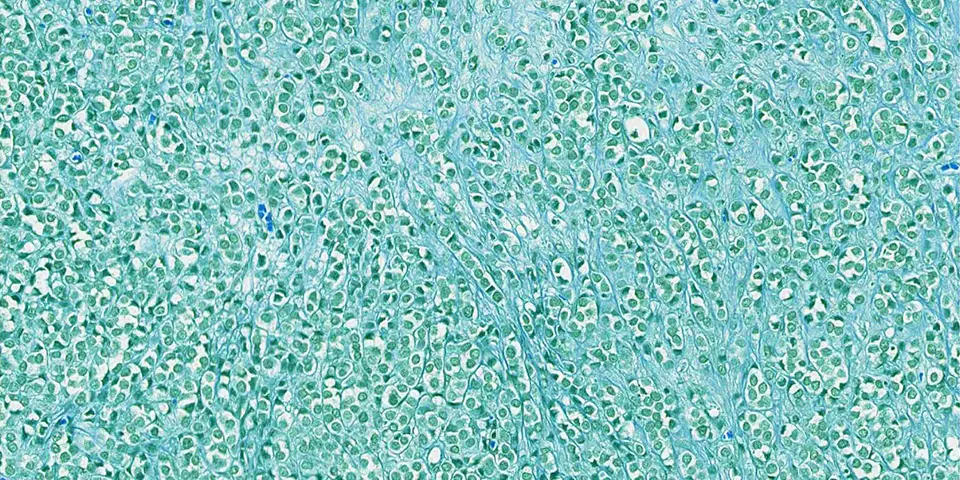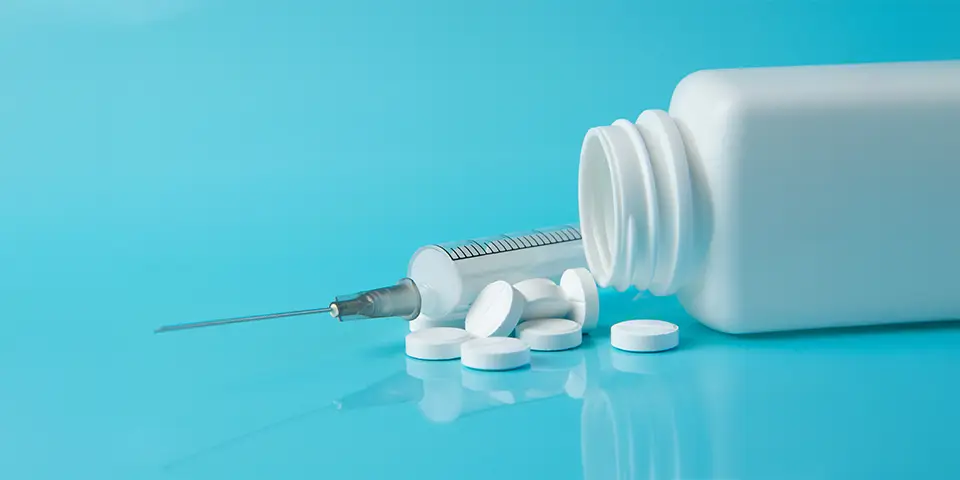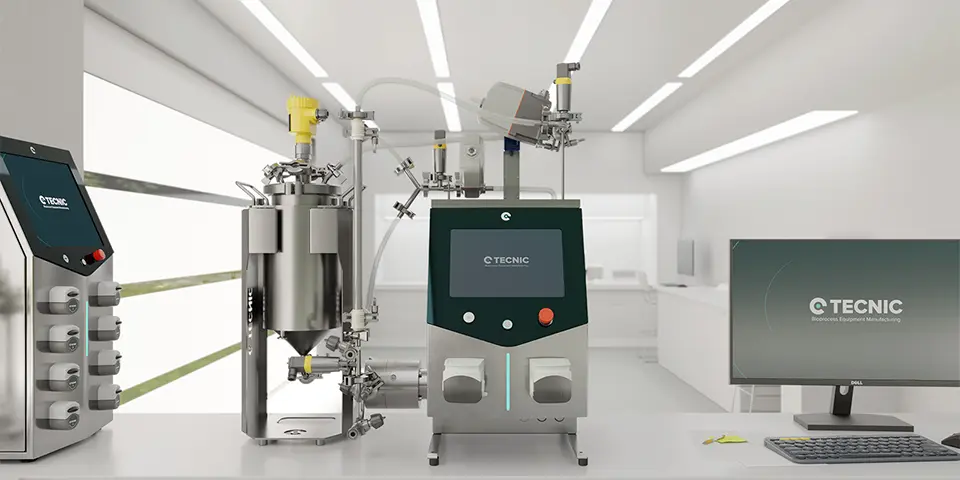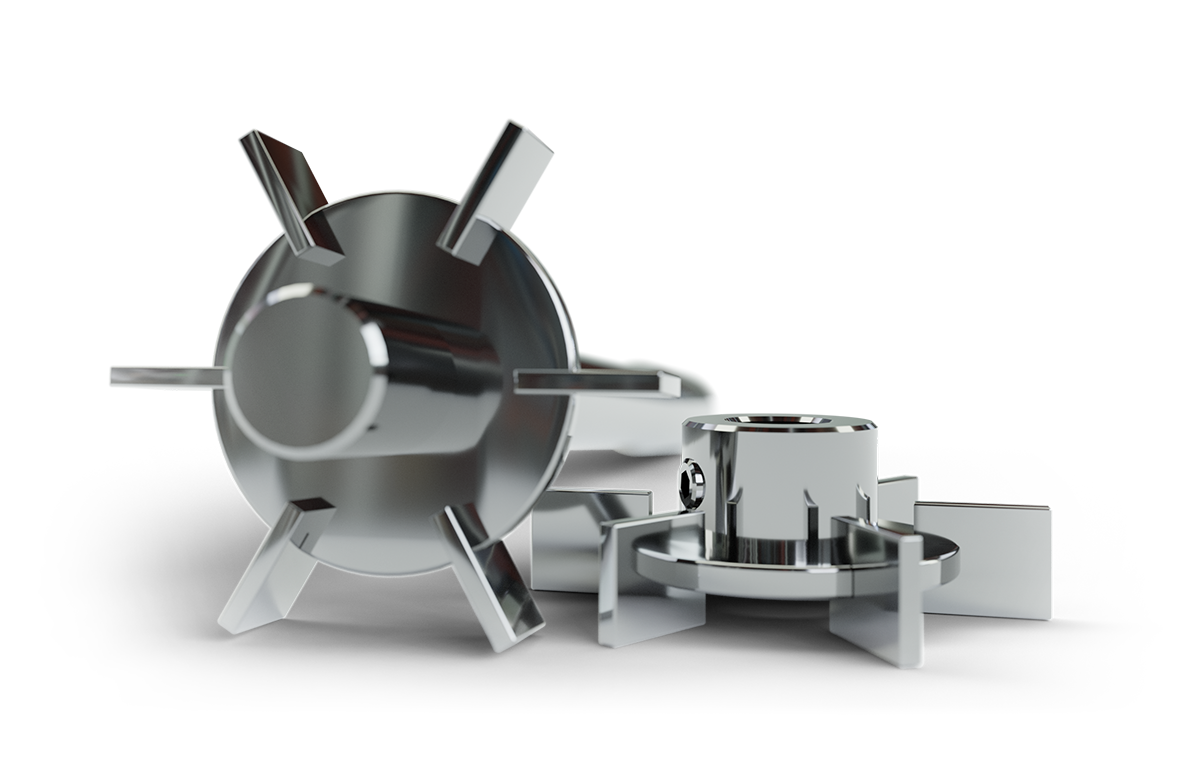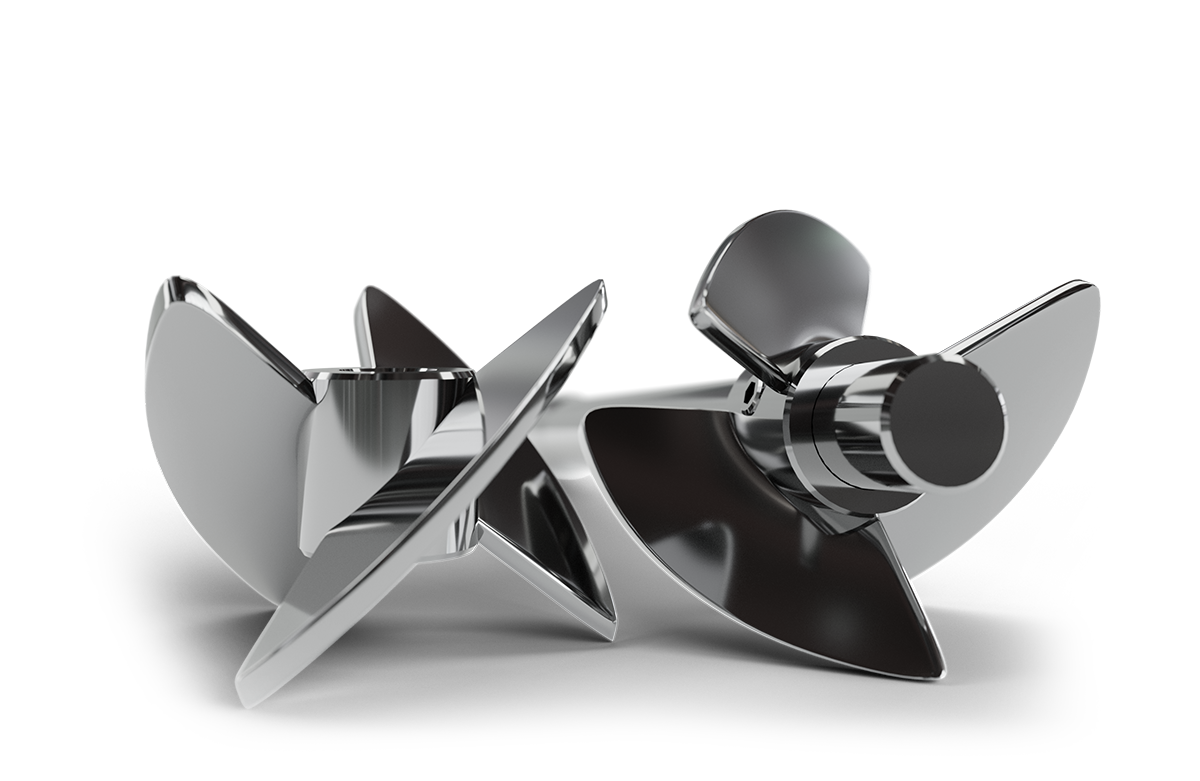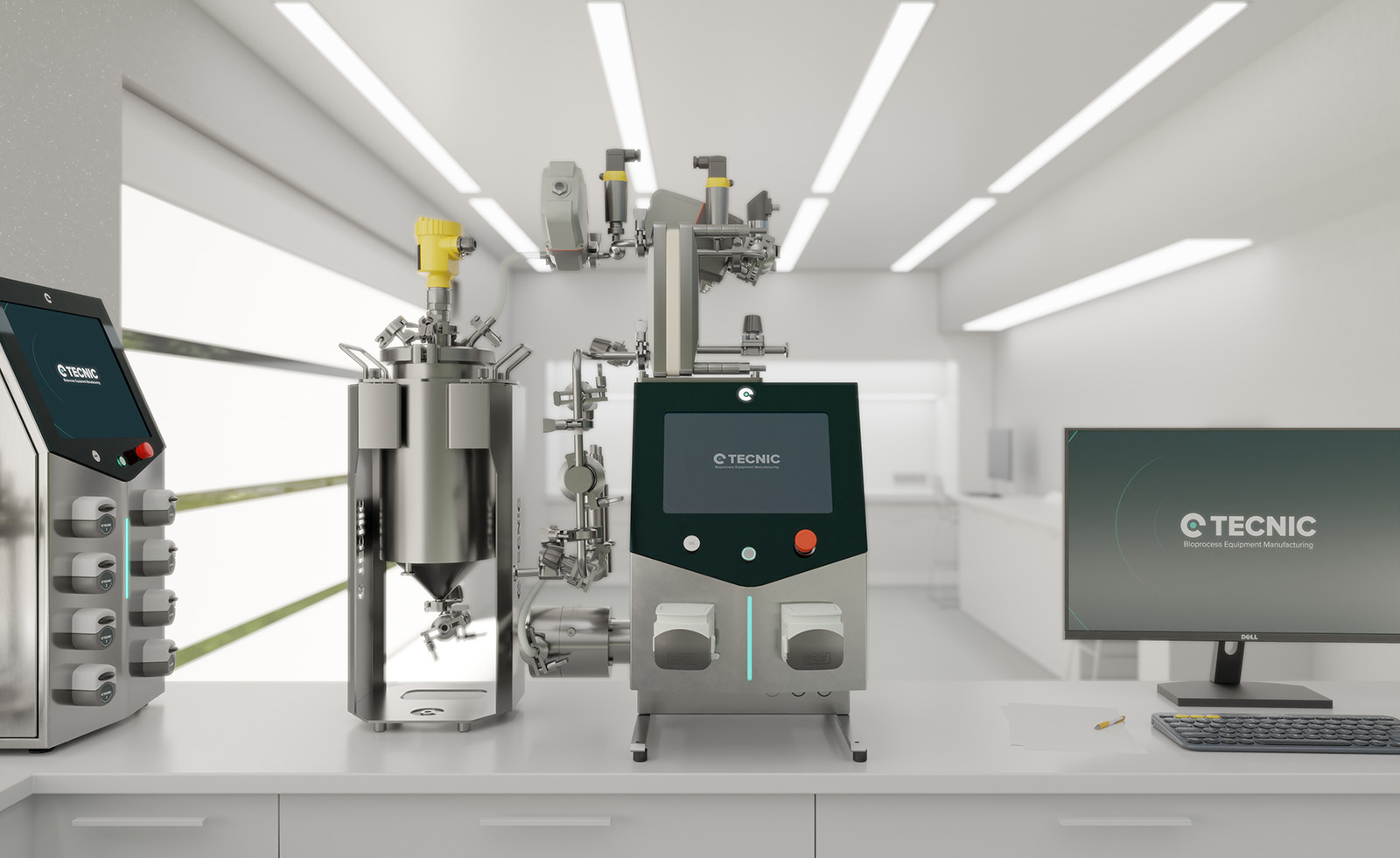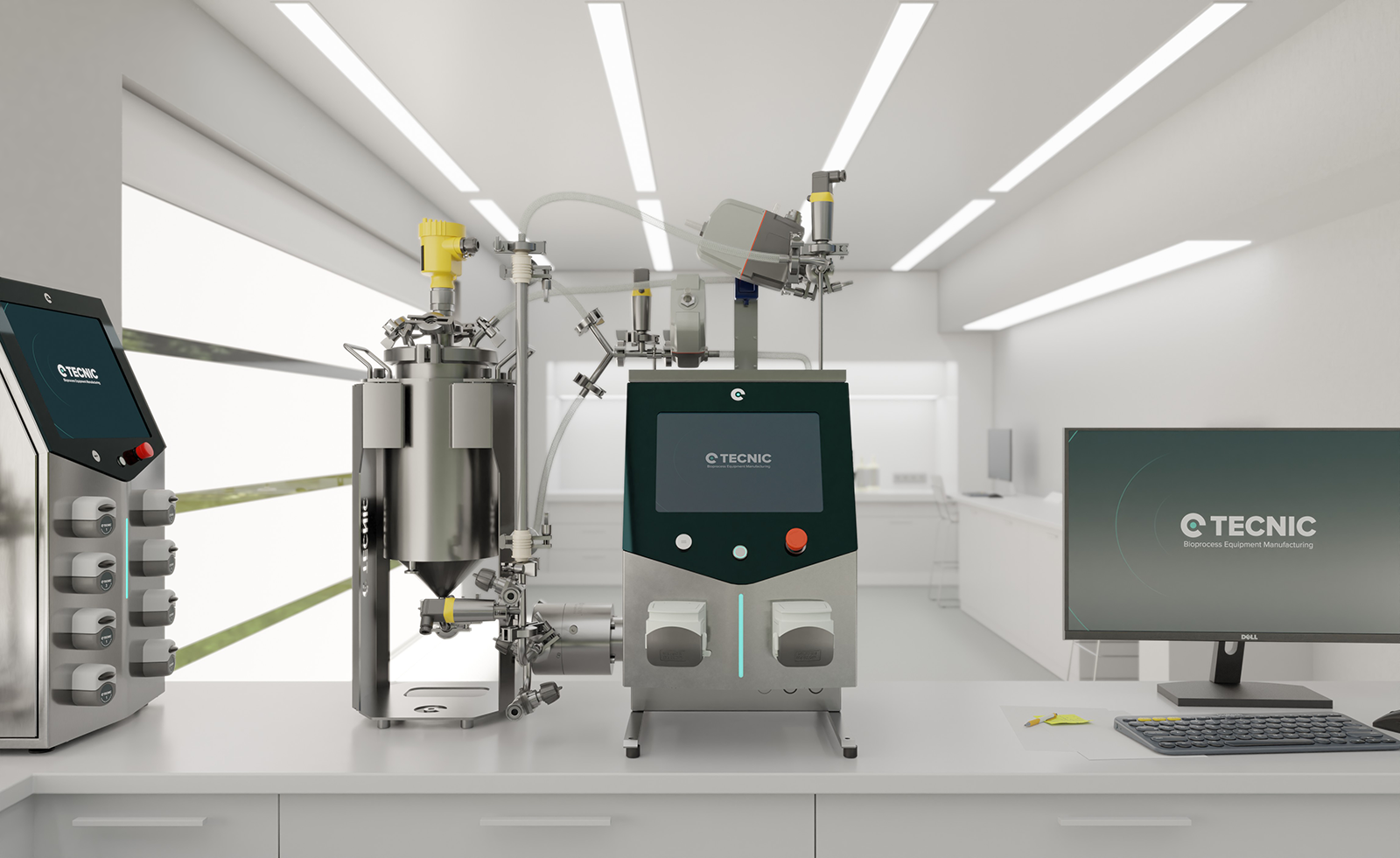An advancement in personalized medicine by TECNIC Bioprocess Solutions
The TECNIC-BYOTIC joint venture has been selected for phase 1 of the pre-commercial public procurement for the development of an intelligent platform of single-use bioreactors in parallel, designed for application in autologous cell therapy. This national-level challenge is being promoted by the Carlos III Health Institute (ISCIII) and the Centre for the Development of Industrial Technology (CDTI). This selection represents an important recognition of the innovative and technical capacity of our UTE, as well as a significant step towards the advancement of technologies that allow progress in cell therapies.
Single-use bioreactors are innovative because they eliminate the need for repeated cleaning and sterilisation between production batches, which is crucial in the production of personalised treatments. They also significantly reduce the risk of cross-contamination and increase the efficiency of the production process by minimising downtime between batches.


Perfusion and advanced control in single-use bioreactors
TECNIC Bioprocess Solutions' project for the development of single-use bioreactors incorporates advanced perfusion technologies and sophisticated control systems, key to optimise the production of biopharmaceuticals based on autologous cells.
The bioreactors designed by TECNIC incorporate a perfusion system that allows efficient feeding and removal of media into the cell culture without disrupting the sterile environment of the reactor. This system is essential for maintaining cell viability during prolonged periods of culture. It is also essential for autologous cell production where product quality and purity are critical.
Continuous perfusion helps maintain optimal conditions within the bioreactor, balancing nutrients and removing metabolic waste that could inhibit cell growth or negatively affect the quality of the final product. This process is accomplished through the use of high-efficiency membrane filters that allow selective passage of nutrients and removal of debris, ensuring that cells are maintained in an optimal environment for proliferation and differentiation.
Control and monitoring software
An innovative aspect of the bioreactor design is its integration with advanced control software that monitors and regulates all critical aspects of the cultivation process. This software, designed specifically for complex bioprocessing operations, allows real-time monitoring of parameters such as pH, temperature, oxygen and carbon dioxide levels, nutrient and metabolite concentrations, among others.
The control system is equipped with intuitive interfaces that facilitate bioreactor management, allowing operators to adjust process conditions quickly and accurately based on real-time data. This is essential to ensure that the cultivation process meets the exact specifications required for each production batch.
In addition, the software incorporates machine learning algorithms that can predict and adjust cultivation conditions to optimise bioprocess outcomes. This predictive capability not only improves the efficiency and effectiveness of biopharmaceutical production, but also reduces the risk of human error and increases the reproducibility of production batches.
Competitive advantages, cost reduction, and production optimization
The modular and flexible design of the bioreactors allows them to be adapted to different scales of production, from small batches for research to the large-scale manufacturing required for commercialisation of treatments. The implementation of single-use bioreactors also reflects TECNIC's commitment to sustainable practices, as they significantly reduce water and energy consumption compared to traditional multi-use systems.
Competitive advantages, cost reduction and production optimisation:
Reduction in the need for cleaning and sterilization: Single-use bioreactors eliminate the need for repetitive cleaning and sterilization processes between batches, which is standard in stainless steel systems. This change significantly reduces resource usage such as water, energy, and cleaning chemicals, and also decreases equipment downtime, allowing for quicker transitions between production batches. By eliminating these processes, TECNIC not only reduces environmental impact but also decreases costs associated with inputs and labor required for equipment maintenance.
Lower risk of contamination: Single-use bioreactors provide a sterile environment by design, drastically reducing the risk of cross-contamination. This feature is especially critical in biopharmaceutical production, where contamination can lead to losses of entire batches, resulting in increased costs and production delays. Improved product safety not only optimizes operating costs but also protects brand integrity and customer trust.
Increased production flexibility: The modular design and ease of configuration of single-use bioreactors allow TECNIC to quickly adapt to different production scales or switch between different types of products without additional equipment investment. This is crucial for efficiently responding to market needs and for research and development of new biopharmaceuticals. The ability to scale production without significant investments in new equipment reduces the CAPEX required for expansion and diversification.
Operational efficiency and OPEX reduction: By integrating advanced monitoring and control systems, TECNIC maximizes production process efficiency. These systems reduce OPEX by optimizing resource usage and improving the quality of the final product, minimizing losses and the need for batch repetition. Real-time monitoring and adjustment of critical parameters also make the process more predictable and less prone to costly errors.
Competitiveness in the global market: The combination of cost reduction, increased production flexibility, and improved product quality positions TECNIC as a competitive leader in the global biopharmaceutical market. These advantages enable the company to offer more cost-effective and reliable solutions, attracting a broader customer base and complying with international pharmaceutical production regulations.
Collaboration and institutional support
One of the key successes of the project is based on strategic collaboration with leading institutions in the health and research fields. This consortium includes the Autonomous University of Barcelona, the Catalan Blood and Tissue Bank, and the Clinic Hospital of Barcelona, each contributing unique competencies essential for overcoming the technical and clinical challenges our project faces.

Future impact and vision
The impact of this project goes beyond simply improving the production of personalised treatments. It sets a new standard for future innovations in the field of biotechnology, aiming at treatments that are not only personalised, but also produced more efficiently and safely. With this project TECNIC is leading the way to a future in which personalised medicine is not just an option, but a practical and accessible reality for all, facilitated by revolutionary advances in bioprocess technology.
This project reflects a commitment to continuous improvement and responsible innovation. The company is establishing new platforms for the production of autologous cell-based biopharmaceuticals, representing a unique form of personalised medicine that requires direct cell manipulation by the patient. This not only optimises therapeutic processes, but also raises the standards of quality and safety in the production of treatments.
In addition, the project promotes an integration of advanced technologies such as single-use bioreactors, which are essential for the efficient implementation of complex biotechnological processes. These developments are intended to significantly reduce costs and production times, making advanced treatments more accessible and scalable. By implementing these advances, TECNIC is not only improving the personalisation of medical treatment, but also driving a new era of accessibility in personalised therapy.
Finally, TECNIC is contributing to economic and technological development by fostering knowledge creation and technology transfer between academia and industry. This collaborative approach ensures that innovations developed in the lab effectively reach the market, transforming advanced research into tangible solutions that benefit society as a whole.





